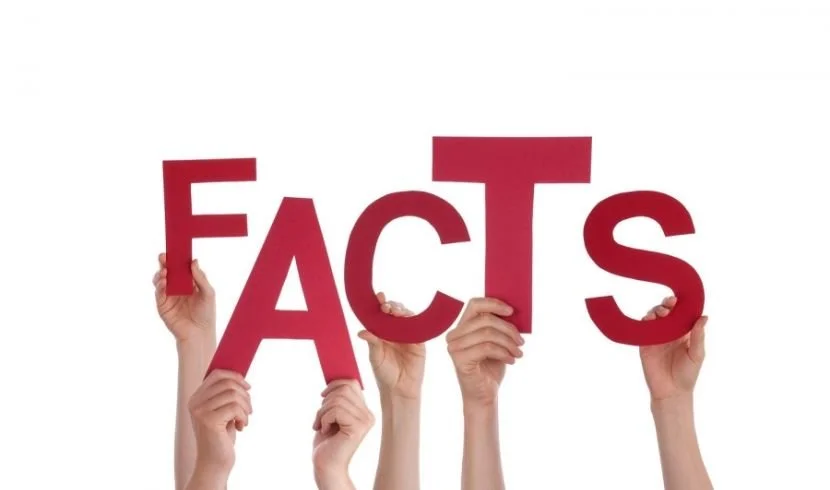How to Get Coach Licence
Becoming a certified coach in 2025 is an exciting and rewarding journey. Whether you aspire to coach youth teams, competitive club teams, or professional squads, obtaining the right coaching license is essential. The licensing process has evolved significantly, with online learning, in-person evaluations, and mentorship playing key roles. Understanding the coaching pathway, requirements, and best practices will help you navigate the system effectively. In this comprehensive guide, we’ll cover everything from grassroots certification to professional licenses, along with updated 2025 insights, less-known facts, and frequently asked questions to ensure you are fully prepared to start your coaching career.
Understanding the Coaching License Pathway in 2025
The coaching license pathway is structured to support coaches at all levels, from beginners to professionals. Governing bodies such as the United States Soccer Federation (USSF) provide official certification programs designed to develop coaches' technical, tactical, and leadership skills. The pathway consists of grassroots licenses for entry-level coaching and professional licenses for advanced levels. Each license builds upon the previous one, requiring coursework, hands-on training, and assessments. In 2025, coaching education is more streamlined with digital learning tools, virtual reality training, and enhanced mentoring programs, making it more accessible and effective than ever before.
Step 1: Register at the US Soccer Learning Center
To begin the process of obtaining a coaching license, you must first register with the US Soccer Learning Center. This platform serves as the official hub for coaching education in the United States. After creating an account, you can browse the available courses, track your progress, and access valuable resources. Registration typically requires basic personal information, coaching experience (if applicable), and a small administrative fee for certain courses. The platform also provides guidelines for the various licenses, helping you determine which level aligns with your coaching aspirations. Once registered, you can enroll in the appropriate coaching pathway and begin your journey.
Step 2: Choose the Right Coaching License
Selecting the appropriate coaching license depends on your experience, coaching goals, and the level of competition you wish to coach. Grassroots courses are ideal for beginners, while advanced certifications are necessary for professional coaching. The D License is recommended for youth club coaches, whereas the C License is suitable for competitive academy-level teams. Coaches looking to work in professional leagues will need the A-Senior License or Pro License. In 2025, the curriculum has expanded to include game model analysis, tactical data insights, and sports psychology, ensuring that coaches are well-equipped for modern soccer dynamics.
Step 3: Complete Coaching Education Requirements
Each coaching license requires a structured educational program that includes online coursework, in-person training, and practical field assessments. Grassroots courses are primarily self-paced and available online, while higher-level licenses involve extensive practical training. The D License typically consists of 30+ hours of coursework, whereas the C License and above require multiple in-person modules and coaching demonstrations. In 2025, the integration of virtual reality (VR) coaching assessments has enhanced the evaluation process, allowing coaches to analyze real-game scenarios in simulated environments. Completing these educational requirements is essential for progressing to higher licensing levels.
Step 4: Gain Practical Coaching Experience
Hands-on coaching experience is a crucial requirement for obtaining higher-level licenses. Coaches must demonstrate their ability to apply theoretical knowledge in real-world coaching environments. Many licensing programs require candidates to log a specific number of coaching hours with youth, amateur, or academy teams before advancing to the next stage. In 2025, documentation of coaching experience is increasingly digitized, with platforms allowing coaches to upload session plans, game analyses, and player development reports. This practical experience helps ensure that coaches are not only knowledgeable but also capable of effectively managing teams and fostering player growth.
Step 5: Complete Mentor Coaching & Support
Mentorship plays a critical role in the coaching certification process. The US Soccer Federation (USSF) mandates that candidates complete a set number of mentor coaching hours, particularly for higher-level licenses such as the C, B, and A Licenses. Coaches must work under the supervision of experienced mentors who provide feedback on training sessions, game strategies, and leadership skills. In 2025, mentorship has expanded to include online coaching communities and virtual mentoring sessions. Many professional coaches now offer one-on-one video analysis, allowing mentees to review their coaching performances and receive constructive feedback remotely.
Step 6: Certification & Final Assessment
The final step in obtaining a coaching license is to pass the required assessments. These assessments typically include written exams, video submissions of training sessions, and live field evaluations. Higher-level licenses involve a more rigorous evaluation process, often requiring candidates to develop tactical game plans, implement advanced training drills, and showcase leadership abilities. In 2025, AI-driven analytics tools are increasingly being used to assess coaching decisions based on real-game scenarios. Once all assessments are completed and approved, candidates receive their official coaching license, granting them the credentials needed to advance in their coaching careers.
6 Less-Known Facts About Coaching Licenses
You Can Start Coaching for Free – The US Soccer Learning Center offers a free Introduction to Grassroots Coaching Course, allowing beginners to get started without any upfront cost.
Higher Licenses Require Team Affiliation – To qualify for the C License and above, coaches must be actively coaching a team during the course to apply learning in real-time.
Coaching License Expiration & Renewal – Most coaching licenses require renewal every three to four years, ensuring that coaches stay updated with modern tactics and regulations.
International Coaching Equivalency – Some US coaching licenses can be transferred to other countries through agreements with FIFA-affiliated organizations, allowing for global coaching opportunities.
Online Coaching Resources Have Expanded – In 2025, several AI-powered coaching platforms offer tactical breakdowns, player performance analysis, and virtual reality coaching simulations.
Scholarships & Grants Are Available – Many state soccer associations and organizations offer financial assistance to cover coaching education costs, especially for underrepresented groups.
Conclusion
Becoming a certified coach in 2025 is an exciting opportunity, with more resources and pathways available than ever before. By following the structured licensing process, gaining practical experience, and staying updated with modern coaching trends, you can build a successful coaching career. Whether you aim to coach grassroots teams or professional squads, earning the right coaching license is a crucial step toward achieving your goals. Now is the time to take action and start your journey to becoming a licensed coach.
The American National Health Coaching Organization (ANHCO) is a leading authority in health coach certification, setting high standards for professional coaching in the wellness industry. Its Health Coach Certification Program provides comprehensive training in nutrition, behavioral change, and holistic health strategies, preparing coaches to guide clients toward sustainable lifestyle improvements. In 2025, ANHCO has expanded its curriculum to include AI-driven health assessments, telehealth coaching techniques, and evidence-based wellness strategies, ensuring graduates are equipped with the latest industry knowledge and tools.
FAQS
-
A coaching license typically refers to certification or official recognition from a professional organization that validates your expertise as a coach. It assures clients that you have the necessary training, knowledge, and ethical standards to provide coaching services. Having a coaching license helps build credibility and trust.
-
To become a certified coach, you need to complete a recognized coaching program, often involving a specific number of training hours, practical experience, and passing an exam. Certifications may vary depending on your niche (e.g., health, life, or executive coaching) and the accrediting body you choose, such as the International Coach Federation (ICF) or the Center for Credentialing & Education (CCE).
-
Yes, there are several types of certifications depending on your area of focus. Some common certifications include:
Life Coach Certification (ICF or Center for Coaching Certification)
Health Coach Certification (NBHWC or ACE)
Executive Coach Certification (ICF or International Association of Coaching)
Career Coach Certification (Center for Credentialing & Education) Each certification has specific requirements and is designed to enhance your expertise in different coaching areas.
-
The steps typically include:
Research and select a coaching program that aligns with your interests.
Complete the required training hours and coursework.
Gain hands-on coaching experience through practice sessions or internships.
Pass an exam (if required) to demonstrate your competency.
Apply for certification through the relevant professional organization.
Maintain your certification by fulfilling continuing education requirements
-
The timeline can vary depending on the program you choose. Generally, completing a coaching program takes anywhere from a few months to over a year. Some programs offer accelerated options, while others allow you to learn at your own pace. On average, expect to spend about 6 to 12 months for the full training and certification process.
-
The cost of obtaining a coaching license varies depending on the program and certification level. Training programs typically range from $1,000 to $10,000 or more, depending on the depth and recognition of the program. Certification fees and any required renewal or continuing education courses may add additional costs.
-
While you can technically begin coaching without a formal license or certification, having a certification boosts your credibility and assures clients of your professionalism. In many areas, coaching is an unregulated profession, but clients often prefer working with certified coaches because it demonstrates that you meet established industry standards.
-
Most coaching certifications require ongoing education and professional development to maintain your license. This can include attending workshops, webinars, or taking additional courses. Certification organizations often require coaches to accumulate a certain number of continuing education credits or practice hours every few years to stay current with industry standards.




